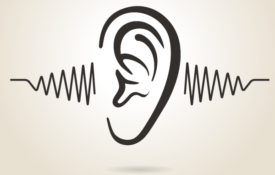-

Persistent Problems and Modest Successes: First-ever Review of Gender Parity Within Psychological Science
Gender gaps for women in psychological science are closing, yet some remain, and more work is needed.
-

People with Blindness Have Refined Spatial Hearing
Does loss of sight enhance a person’s sense of hearing? New research supports this commonly held belief in one intriguing way: by testing blind people’s ability to navigate their surroundings. [September 15, 2020]
-

How’s That? It Doesn’t Take a Scientist to See Through Implausible Research Hypotheses
In reviewing key findings from the social-science literature, laypeople were able to accurately predict replication success 59% of the time.
-

NIH Funding Research on Sleep Disparities in the U.S.
Like many adverse health patterns, the prevalence of sleep deficiency is higher in health disparity communities. Because of the many poor health outcomes associated with sleep deficiency, the National Institutes of Health has released a funding opportunity announcement for researchers to investigate the causal mechanisms behind sleep disparities.
-
Power Shortage
Giving speeches was not usually a problem for me, but a lot was riding on this one, and I had a genuine case of nerves as I took the stage. Before me were 1,500 delegates, mainly women, of every race and ethnicity, who had traveled to Beijing for the United Nations Fourth World Conference on Women. What they all had in common in that moment was a daunting impassivity. It was September 5, 1995. I had spent weeks writing and rewriting my speech. I wanted it to be bold, accessible, and unambiguous. I also thought hard about getting the delivery right. Women are often criticized if we show too much emotion in public, and I wanted to make sure my tone didn’t obscure the message.
-
COVID-19 Has Taught Us What Intelligence Really Is
COVID-19 has taught us something important about intelligence. It’s not just that we can get by without IQ-test proxies like the SAT and ACT that go by a number of different names to avoid being called IQ tests. (Research by Douglas K. Detterman, professor of psychology at Case Western Reserve University, and others shows that these tests are essentially disguised tests of general intelligence.) It’s not that such tests administered online at home will almost certainly be invalid. Rather, it’s that the tests never measured what’s important in the first place, and we should have known better. Actually, we did know better.

